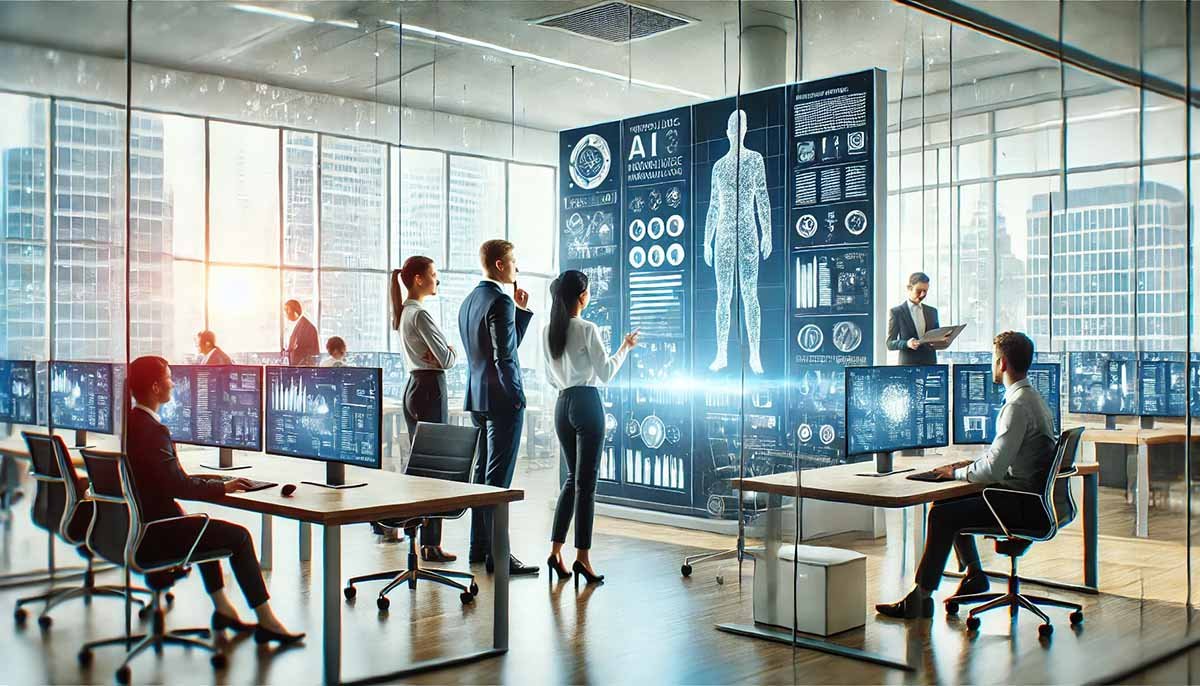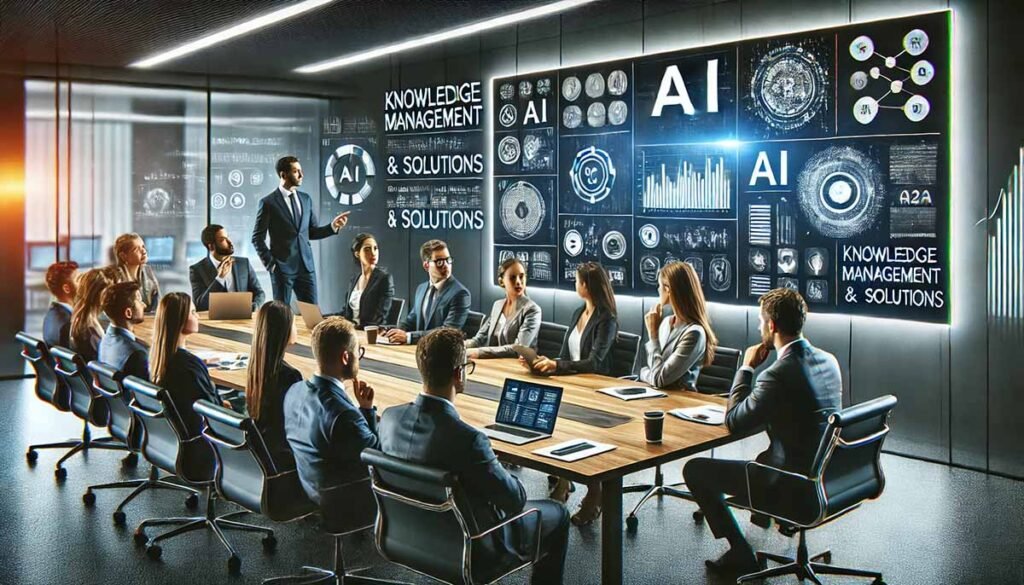How Artificial Intelligence (AI) Is Transforming Knowledge Management in the Workplace

The emergence of AI has sparked a revolution across various sectors, and knowledge management within the workplace is no exception. Businesses are continually seeking solutions to enhance the efficiency and reliability of their knowledge-sharing processes, and AI is at the forefront of this transformative wave. Through the power of machine learning and natural language processing, AI-driven systems are able to curate, organize, and distribute information like never before. Understanding the relationship between AI and knowledge management is critical for organizations looking to maintain a competitive edge. In this article, we will delve into how AI is remodeling the landscape of workplace knowledge sharing.
Overcoming Knowledge Silos With AI Integration in the Workplace
Knowledge silos present a significant challenge in organizations, where information is often trapped within departmental confines. AI integration in the workplace has been instrumental in breaking down these silos, fostering a more interconnected and transparent knowledge-sharing environment. AI systems facilitate the flow of information across departments, ensuring all employees have access to the knowledge they need.
Additionally, insights gained from knowledge management and AI are paving the way for more strategic knowledge planning. Organizations equipped with AI tools can better assess the knowledge gaps and strengths within their teams, leading to informed decisions about resource allocation and knowledge development initiatives.
Enhancing Decision-Making With AI-Driven Analytics
AI-driven analytics have begun to profoundly influence the decision-making processes in the workplace. Managers and team leaders now leverage data insights provided by AI to inform strategic choices and predict outcomes. These analytics help organizations to become proactive, rather than reactive, in their decision-making.
The application of machine learning models in analyzing business metrics has resulted in the discovery of new growth opportunities and the identification of potential risks. This foresight enables businesses to craft strategies that are more nuanced and targeted. Consequently, organizations are not just making decisions faster, but also with a higher likelihood of success.
The integration of predictive analytics into knowledge management systems provides employees at all levels with actionable insights. By analyzing historical data and patterns, AI helps in forecasting future trends and customer behaviors, informing both long-term and short-term decision-making. This insight generation could become a cornerstone of smarter business practices.
AI and the Future of Corporate Learning and Development

Corporate learning and development are seeing a metamorphosis as a result of AI influences. Tailored learning experiences, created through AI’s understanding of individual learning patterns and preferences, are setting new standards in employee education. These education platforms adapt in real time, providing personalized content and pacing to optimize the learning journey. For organizations aiming to upskill their leadership teams, AI for leaders is emerging as a crucial focus area. By leveraging AI-driven insights, leaders can develop strategic thinking, make data-informed decisions, and drive innovation across their organizations, ensuring they stay ahead in a rapidly evolving business landscape.
Furthermore, AI can evaluate the effectiveness of training materials by analyzing employee engagement and performance before and after training sessions. By doing so, it ensures that future training is better suited to the employees’ needs and the objectives of the organization.
Corporate learning systems powered by AI also facilitate continuous learning, by recommending resources and courses based on an employee’s career trajectory and goals. This approach positions learning as an integral and ongoing aspect of an employee’s growth within the company, rather than a series of isolated training events.
Streamlining Information Retrieval Through AI Applications

Information retrieval has been drastically streamlined with the advent of AI applications in the workplace. No longer do employees have to sift through irrelevant data; AI systems can access a repository of information and deliver precise content in response to complex queries. This capability is pivotal for time-sensitive projects and decision-making.
The AI technology also extends to voice-activated and conversational interfaces, which simplifies the process of retrieving information even further. Users can interact naturally with AI systems, asking questions and receiving information as if they were conversing with a colleague. This high level of user-friendliness encourages broader adoption across various levels of the organization.
By implementing AI-driven knowledge management systems, enterprises can provide their staff with a powerful tool that integrates seamlessly into their workflow. Such tools elevate productivity by reducing the time taken to locate necessary information. This enables employees to focus more on tasks that demand human expertise, creativity, and strategic thinking.
Overall, AI is ushering in a new era of knowledge management, one that is characterized by efficiency, personalization, and strategic foresight. Through its ability to organize, analyze, and disseminate information, AI is not just transforming traditional knowledge management processes; it is revolutionizing the way knowledge is productively used in the workplace. As businesses continue to embrace these technologies, the integration of AI into knowledge management will likely become standard practice, unlocking new potential for innovation and competitive advantage.
For more insightful articles related to technology, please visit Bloghart.
